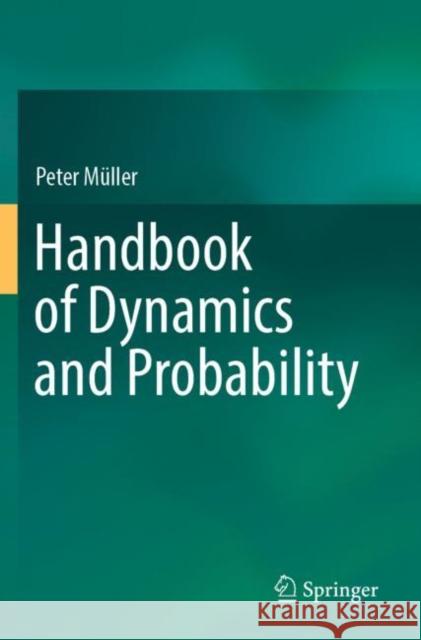Handbook of Dynamics and Probability » książka
Handbook of Dynamics and Probability
ISBN-13: 9783030884888 / Angielski / Miękka / 2022 / 543 str.
Handbook of Dynamics and Probability
ISBN-13: 9783030884888 / Angielski / Miękka / 2022 / 543 str.
(netto: 654,80 VAT: 5%)
Najniższa cena z 30 dni: 655,41
ok. 16-18 dni roboczych.
Darmowa dostawa!
Our time is characterized by an explosive growth in the use of ever more complicated and sophisticated (computer) models. These models rely on dynamical systems theory for the interpretation of their results and on probability theory for the quantification of their uncertainties. A conscientious and intelligent use of these models requires that both these theories are properly understood.This book is to provide such understanding. It gives a unifying treatment of dynamical systems theory and probability theory. It covers the basic concepts and statements of these theories, their interrelations, and their applications to scientific reasoning and physics. The book stresses the underlying concepts and mathematical structures but is written in a simple and illuminating manner without sacrificing too much mathematical rigor.The book is aimed at students, post-docs, and researchers in the applied sciences who aspire to better understand the conceptual and mathematical underpinnings of the models that they use. Despite the peculiarities of any applied science, dynamics and probability are the common and indispensable tools in any modeling effort. The book is self-contained, with many technical aspects covered in appendices, but does require some basic knowledge in analysis, linear algebra, and physics.Peter Müller, now a professor emeritus at the University of Hawaii, has worked extensively on ocean and climate models and the foundations of complex system theories.
Our time is characterized by an explosive growth in the use of ever more complicated and sophisticated (computer) models. These models rely on dynamical systems theory for the interpretation of their results and on probability theory for the quantification of their uncertainties. A conscientious and intelligent use of these models requires that both these theories are properly understood.This book is to provide such understanding. It gives a unifying treatment of dynamical systems theory and probability theory. It covers the basic concepts and statements of these theories, their interrelations, and their applications to scientific reasoning and physics. The book stresses the underlying concepts and mathematical structures but is written in a simple and illuminating manner without sacrificing too much mathematical rigor.The book is aimed at students, post-docs, and researchers in the applied sciences who aspire to better understand the conceptual and mathematical underpinnings of the models that they use. Despite the peculiarities of any applied science, dynamics and probability are the common and indispensable tools in any modeling effort. The book is self-contained, with many technical aspects covered in appendices, but does require some basic knowledge in analysis, linear algebra, and physics.Peter Müller, now a professor emeritus at the University of Hawaii, has worked extensively on ocean and climate models and the foundations of complex system theories.











